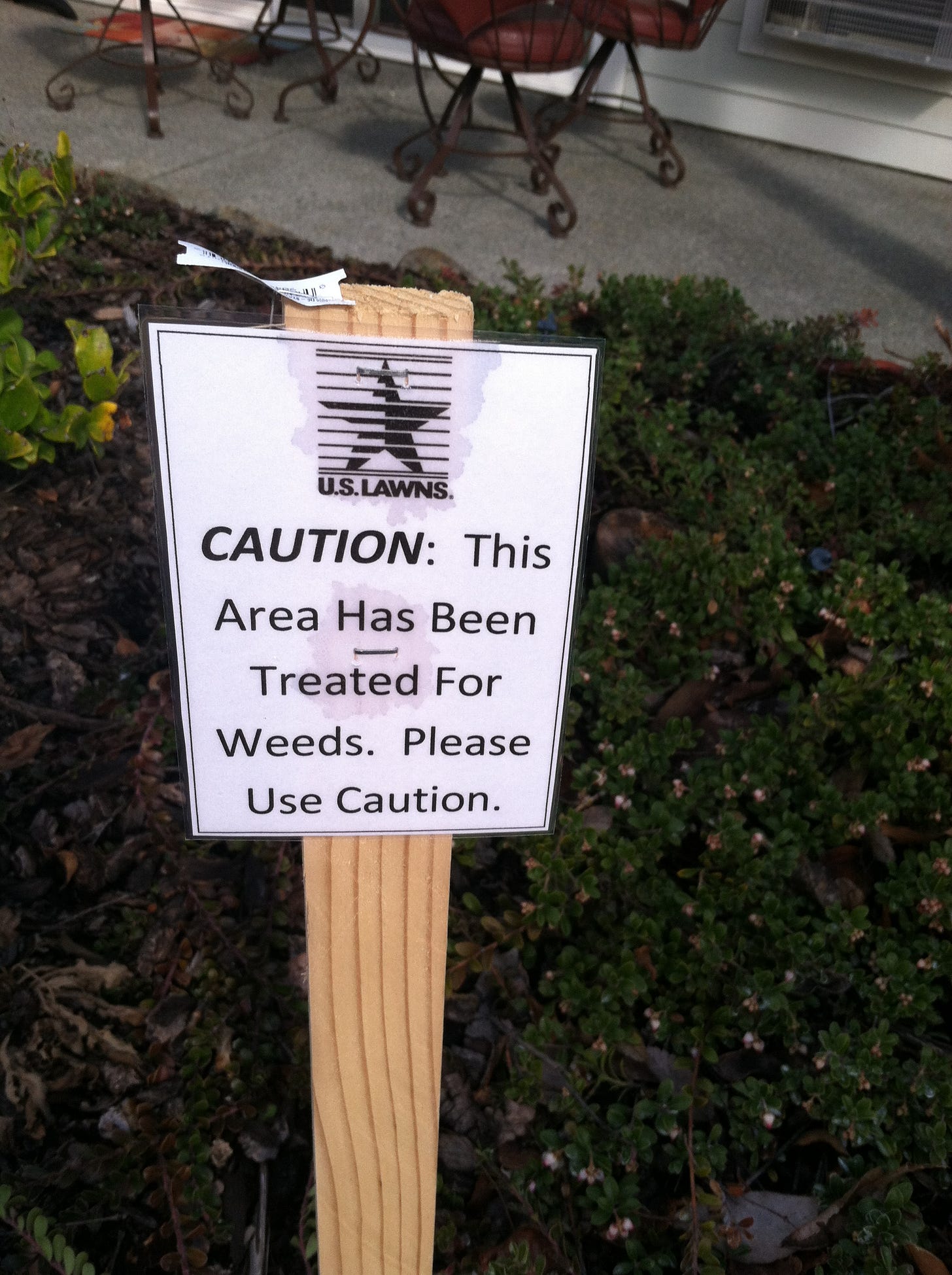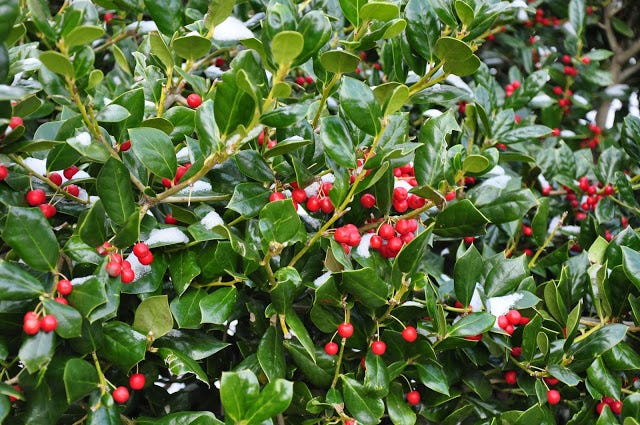Why Organic is Important
I was out jogging recently and saw this sign in all the garden beds and lawns in a local apartment complex. When you see a sign like this it means the ground has just been sprayed with herbicides and pesticides. As you can see it doesn't say what was used.
This practice erodes soil health, because when chemicals are used that require a warning sign, it is safe to assume they are killing off the microorganisms that build up nutrients in your soil. If your soil is not rich in mycorrhizae and earthworms it cannot hold nutrients to its fullest potential. This creates a vicious cycle that focuses on short term benefits where weeds go away and plants may look better and grow faster for a while, but this practice creates long term damage. This is much harder to reverse then working on solutions that address the cause and doing preventative maintenance.
Not many owners are thinking about the future and the long term investment in their land and the health of people and pets. I'm dedicated to creating a more lovely Southern Oregon by increasing the health, beauty, and value of your land. I provide organic ways to manage weeds, invasive plants, pests, and water conservation without the use of toxic chemicals.
Your garden can be everything you want it to be through these practices if you are willing to work with nature, and focus on long-form ways of gardening. Long term value is provided for you and your future by choosing me, and my unique approach for your garden projects.
Featured Portfolio Pictures - Deer Resistant Plants
Below we have a Candytuft. An evergreen bordering, low-growing, shrubby ground-cover with lovely white flowers. It prefers well drained soil in full sun and is B grade deer proof, which means they may eat it/pick at it, but won't completely annihilate it. I've also found it holds up well for those of you who have dogs and other animal traffic like wild turkeys and cats.
Here we have Chinese Holly. Another evergreen shrub that is grade A deer proof, which means the deer should not eat it at all. It grows tall, has sharp leaves, and is one tough plant. It does well in Southern Oregon and will grow in sun or shade. I don't recommend full shade though—full sun is fine.
Straight Up & Free with James D is a reader supported publication.
If you found this valuable and educational, and appreciate the craftsmanship and care I bring in providing this content, please consider upgrading your subscription to support my work. You can also give a gift subscription, or make a one time donation.
Thank you!




